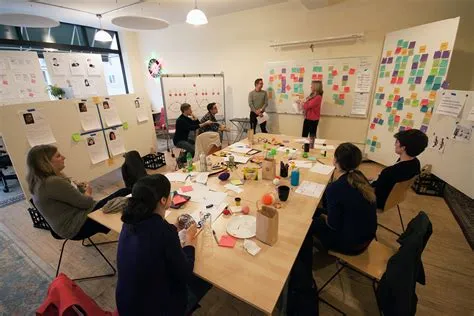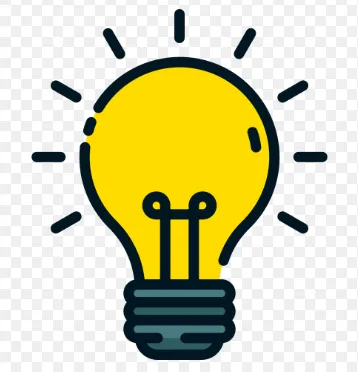Hey there, fellow innovators! Ever felt stuck in a rut, struggling to come up with fresh, groundbreaking ideas? You’re not alone. Many of us face this challenge, but there’s a powerful tool that can help us break free: design thinking. And the best way to master it? Through engaging and insightful design thinking workshops.
Design thinking isn’t just some buzzword; it’s a human-centered, problem-solving approach that’s revolutionizing the way we innovate. Think of it as a recipe for creativity, with carefully measured ingredients and a clear process to follow. It’s about understanding the needs of your users, generating a multitude of ideas, prototyping solutions, and testing them rigorously. It’s iterative, it’s collaborative, and it’s incredibly effective.
But how do you actually do design thinking? That’s where workshops come in. These aren’t your grandma’s stuffy lectures; they’re dynamic, interactive experiences designed to equip you with the skills and confidence to tackle complex challenges head-on. Imagine a room buzzing with energy, where diverse perspectives collide, and innovative solutions are born. That’s the magic of a well-run design thinking workshop.
What Happens in a Design Thinking Workshop?
A typical workshop unfolds in a series of carefully structured phases, each designed to build upon the last. Think of it as climbing a mountain; each phase is a strategic base camp, bringing you closer to the summit of innovation.
Empathize: This initial phase is all about understanding your users. You’ll delve deep into their needs, pain points, and motivations. We’re not just talking about market research; we’re talking about truly understanding the human experience behind the problem. This might involve user interviews, observations, or even empathy mapping exercises. Think of it as stepping into your users’ shoes and seeing the world through their eyes.
Define: Once you have a deep understanding of your users, you can clearly define the problem you’re trying to solve. This is about crafting a concise, focused problem statement that sets the stage for the ideation phase. It’s like sharpening your focus before you embark on a long journey. A well-defined problem is half the battle won.
Ideate: This is where the creative juices really start flowing! This phase is all about generating a wide range of ideas, no matter how wild or unconventional they may seem. Brainstorming, sketching, and mind mapping are all common techniques used to unlock creative potential. Think of it as a fertile ground where new ideas are sown and nurtured. Want to learn more about effective ideation techniques? Check out our comprehensive guide on collaborative ideation.
Prototype: This is where your ideas take tangible form. Prototypes don’t have to be fancy; they can be simple sketches, mock-ups, or even role-playing exercises. The goal is to quickly test your ideas and get feedback. Prototyping is like building a small-scale model of your solution to see if it’s feasible and effective. We have excellent resources on prototyping and testing that can help you master this crucial phase.
Test: This final phase is all about gathering feedback on your prototypes and iterating on your designs. Testing can involve user interviews, A/B testing, or even usability studies. It’s like putting your solution to the ultimate test to see if it truly addresses the user’s needs. Explore various testing methodologies by checking our blog on prototyping and testing.
The Benefits of Attending a Design Thinking Workshop
So, why should you invest your time and resources in a design thinking workshop? The benefits are numerous:
Enhanced Creativity: Workshops provide a structured environment that encourages creative thinking and problem-solving. They help you break free from conventional thinking patterns and embrace innovative solutions.
Improved Collaboration: Design thinking is inherently collaborative. Workshops provide a platform for diverse teams to work together, share ideas, and learn from each other. Learn more about the importance of collaboration in collaborative ideation.
Practical Skills: You’ll learn and practice specific design thinking tools and techniques, equipping you with the practical skills you need to apply this methodology in your work. Discover more about advanced techniques by visiting our page on advanced techniques.
Real-World Application: Workshops often incorporate real-world case studies and challenges, helping you see how design thinking can be applied to various industries and contexts. Our blog offers practical examples of design thinking in practice.
Professional Development: Participating in a design thinking workshop can significantly enhance your professional development, making you a more valuable asset to your team and organization. Explore more avenues for your professional development with us.
Finding the Right Workshop for You
The best workshop for you will depend on your experience level and specific needs. Some workshops focus on the fundamentals of design thinking, while others delve into more advanced techniques and applications. Consider your current skillset and goals when choosing a workshop. Our workshops cover various aspects, from foundational concepts to advanced concepts and practical applications in design thinking. Look for workshops that offer a mix of theory and hands-on practice.
Also, consider the instructor’s experience and reputation. A skilled facilitator can significantly impact the overall learning experience. Do they have a proven track record of success in guiding teams through the design thinking process?
Beyond the Workshop: Continuous Learning
Remember, design thinking is a journey, not a destination. Even after completing a workshop, it’s crucial to continue learning and practicing. Stay updated on the latest trends and techniques, and seek out opportunities to apply your skills in real-world projects. Our blog, https://ideation.biz.id/blog, is a great resource for staying informed and inspired. We also cover topics such as principles of design thinking and creative problem-solving.
In conclusion, design thinking workshops are invaluable tools for fostering innovation and problem-solving skills. They provide a structured, engaging environment for learning and practicing this powerful methodology. By embracing design thinking, you can unlock your creative potential, foster collaboration, and drive positive change in your organization and beyond. So, what are you waiting for? Dive in and start your design thinking journey today!
FAQs
1. Are design thinking workshops suitable for beginners? Absolutely! Many workshops cater to all skill levels, starting with the fundamentals and gradually building complexity.
2. How long do design thinking workshops typically last? Workshop durations vary, ranging from half-day sessions to multi-day intensive programs.
3. What kind of projects can I work on during a workshop? Workshops often involve real-world case studies or allow participants to tackle their own challenges.
4. What materials or tools will I need for a workshop? Most workshops provide the necessary materials, but it’s always a good idea to bring a notebook and pen for taking notes and jotting down ideas.
5. How can I find a reputable design thinking workshop provider? Research different providers, read reviews, and check their credentials to ensure they have a track record of success in delivering quality workshops.

